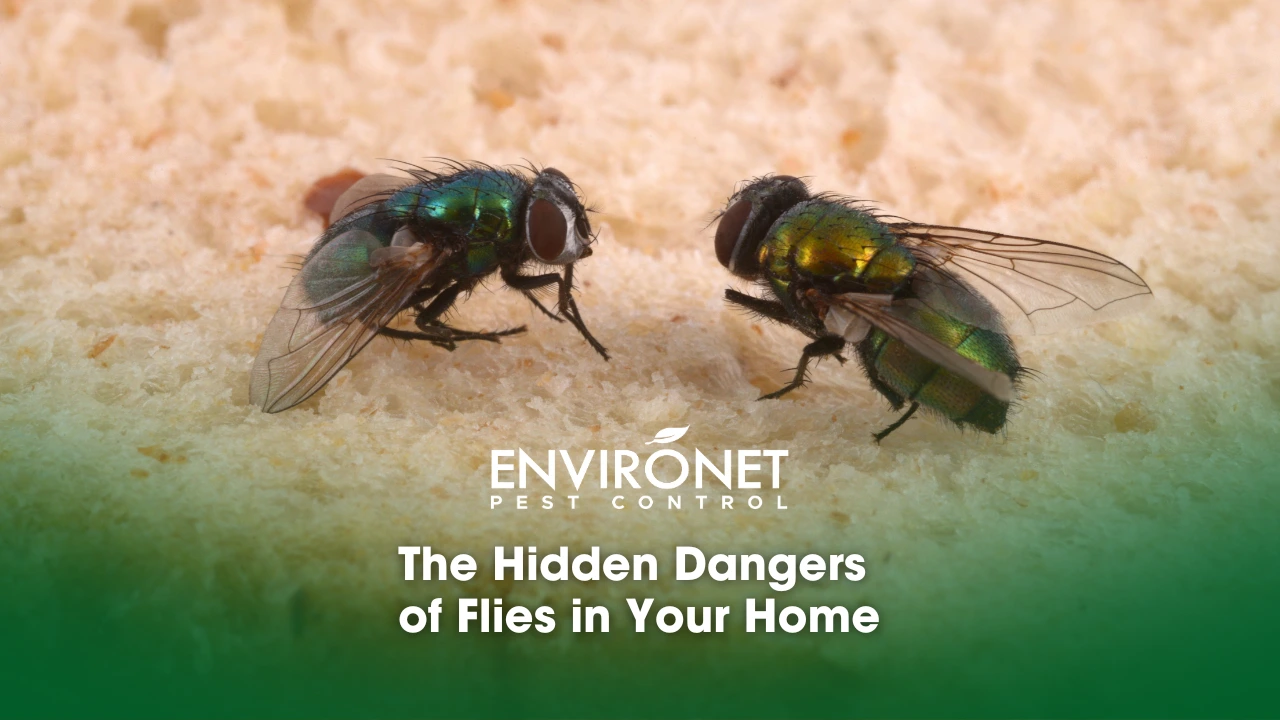
The Hidden Dangers of Flies in Your Home
When you see a fly buzzing around your kitchen or dining table, your first thought might be annoyance. But flies aren’t just a nuisance—they’re also carriers of bacteria and potential health risks. Understanding why they invade homes and the dangers they bring can help you take action before a small problem turns into a full-blown infestation.
Why Flies Invade Homes
Flies are attracted to the same things we often overlook in our daily routines:
-
Uncovered food and drinks – Sweet beverages, meat, and fruit are magnets for flies.
-
Waste bins – Trash, especially food waste, is one of their favorite breeding grounds.
-
Moisture and organic matter – Damp mops, dirty drains, and even pet waste can provide ideal conditions for flies.
-
Open entry points – Windows without screens, open doors, or small cracks in your home can easily invite them in.
Even if your home looks clean, just one overlooked area is enough to attract and sustain them.
The Health Risks Flies Bring
Unlike ants or termites, flies don’t just damage property—they directly affect your health. Flies are known to carry and spread harmful pathogens like:
-
E. coli
-
Salmonella
-
Cholera
-
Dysentery
Because flies constantly move between decaying matter, garbage, and human food, they act as carriers, transferring bacteria onto surfaces and meals. A single fly landing on your plate is enough to contaminate it.
Why DIY Fixes Are Only Temporary
It’s tempting to swat flies, spray aerosols, or set up sticky traps. While these can kill a few, they don’t address the root cause of the problem. Flies breed rapidly, and without identifying where they’re coming from, you’ll notice them returning again and again.
Common DIY efforts often fail because:
-
Breeding sites remain hidden or untouched.
-
Quick fixes only kill adult flies, leaving larvae to develop.
-
Infestations from nearby areas (like neighbors’ trash) can easily spread into your home.
Prevention Tips to Reduce Flies
While no home can be 100% fly-proof, you can significantly reduce their presence with these preventive steps:
-
Keep food stored in sealed containers.
-
Empty and clean garbage bins regularly.
-
Clean drains and dispose of organic waste properly.
-
Use window and door screens to block entry.
-
Maintain overall sanitation inside and outside your home.
When to Call for Professional Help
If flies keep coming back despite your best efforts, it may be time to seek professional pest control services. Experts don’t just target the visible flies; they identify sources, breeding areas, and implement treatments to minimize future infestations.
Protecting your home isn’t just about comfort—it’s about health. Don’t wait until a fly problem grows out of control.
Book our Fly Control today and keep your place safe, clean, and healthy.
